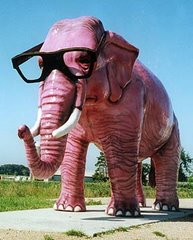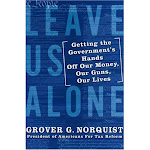I'm one of those people Iranian President Mahmoud Ahmadinejad says don't exist. I'm a 25-year-old Iranian, and I'm gay.
I live in Tehran with my parents and younger brother and am studying to be a computer software engineer. I've known that I was different from my brother and other boys for as long as I can remember.
I was born in 1982, two years after the start of the Iran-Iraq War, and when I was growing up, most boys loved to play with toy guns, pretending to be soldiers in the war. I liked painting, and playing with dolls. My brother preferred to play with the other boys, so most of the time I was lonely.
I was 16 when I first realized that I was sexually attracted to some of the boys in my high school classes. I had no idea what I could do with that feeling. All I knew about homosexuals were the jokes and negative stories that people told about them. I thought a homosexual was someone who sexually abused children -- until I saw the word "homosexual" for the first time in an English encyclopedia, and found a definition of myself.
After that, I started searching the Internet for information about homosexuality. Eventually I came across two Iranian Web sites where I could communicate with other gays. I was 17. At first, I didn't want to give anyone my e-mail address because I was afraid that I could be abused or that my parents might find out, or that people on the site could be government spies. But I finally decided to exchange e-mails with one person, and after some correspondence, we spoke on the phone. I'll never forget the first time I heard the voice of another gay man. We arranged to meet at the home of a friend of his, and the three of us talked for hours. I felt so comfortable with them. The next day I learned that the friend was interested in me. His name was Omid, and we became boyfriends.
I also became interested in the gay social movement that started in 2000. Around that time, Iranian society became more open under President Mohammad Khatami's reformist government. The Internet became common, and everybody started talking about issues they couldn't even have thought about before.
Until then, the gay world had been underground and secret. Under the Islamic Republic, gays could face the death penalty; they could also lose their jobs and family support. Meetings and parties took place only in the most trusted private homes. Heterosexuals were almost never seen at these gatherings. Even fellow gays were only slowly accepted. It could take years for a homosexual to become known and trusted. Most older gays were married and even had children, and their family and friends had no idea of their sexuality.
There was a handful of gathering places for outcast homosexuals in Tehran, people who couldn't hide their sexuality and had lost their jobs, or people whose families had disowned them, and who had turned to selling sex for money. Those places were always being attacked by the paramilitaries.
My generation was the first to start the coming-out process. I decided to come out when I was 20. I thought that if I just talked to my parents about it, they would accept my reasoning. I was totally wrong. Their reaction was horrible. They started to restrict me -- I couldn't use the phone or invite any of my friends over, and they cut back on financial support. Part of their reaction was religious; part was their concern that I couldn't survive as a homosexual in Iran. They were also ashamed to tell the rest of our family and wanted to see me married to a woman.
We argued constantly; they insisted that I wasn't gay, that I only thought I was. It took me years to calm them down, but over time, they lost any hope of changing me, and they started to change themselves. Now they accept that I'm gay, but they're not happy about it.
Meanwhile, the gay community has worked to educate people via Web sites and dialogue with our friends and families. But we've found that the most effective way of changing people's minds is coming out. When people see us as reasonable humans, their negative views of homosexuality are shattered. I can honestly say there's been a change in the way Iranians view us now. Gay life in Iran isn't as underground as it used to be. We have gay parties with heterosexual guests -- and even our parents! We have places where we can congregate -- in coffee shops, special park areas and even certain offices. Many more homosexuals are willing to come out these days. Activists estimate that .5 percent of the Iranian population is homosexual, bisexual or transsexual.
But we weren't surprised by Ahmadinejad's comments about gays at Columbia University. What else could he say? We stone homosexuals in Iran because that's what God wants? It was a joke, but he gave the only answer he could.
I wish our president could learn to respect gays instead of denying us. But I'm not holding my breath. In the meantime, my only response to his remarks is this: Whatever he says, Ahmadinejad can't change the fact that we exist.
Amir is an activist in Tehran whose name is being withheld for his safety.



2 comments:
I wish Amir's president would learn to stop funding terrorists groups and attacking American soldiers in Iraq.
Wow - sounds like he is doing quite well, under the circumstances. I've heard before that lots of Islamic countries have quite a bit of hidden gay life. Saudi Arabia in particular has a reputation for this.
I must admit, it sounds like Amir has a better, more free life than a large number of the mohos in Holland. They theoretically have access to all the opportunities of the Western world but tend to be hugely boxed in by traditional family structures and tribal taboos. I suspect the reason is that Amir's family is probably a bit more educated and more urban than the average guest worker over here.
Post a Comment